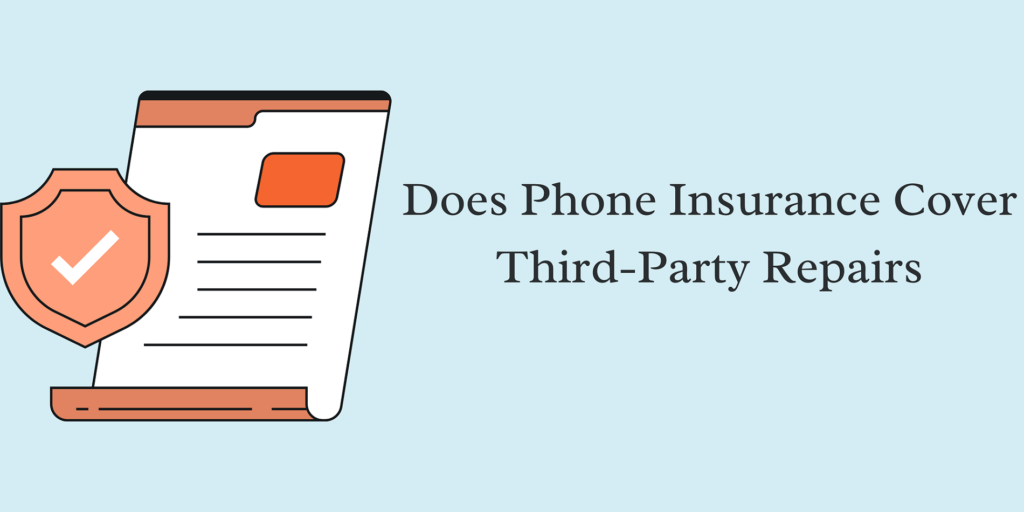In today’s digital world, mobile phones are essential for personal and business use, holding valuable data and enabling communication. However, phones can be easily damaged, and repairing them can be expensive. Phone insurance helps, but many people wonder if third-party maintenance is covered. In this blog, we’ll learn about phone insurance policies and what you need to know about third-party repair coverage.
What Are Third-Party Repairs?
Third-party repair means having your phone fixed by a service provider that is not affiliated with your device’s manufacturer or your insurance provider. Typically, this can be a local repair shop or an independent technician. These repair shops often provide faster service and may charge less than official repair centers. As a result, they are attractive to people looking to save money or avoid long wait times.
Phone Insurance and Third-Party Repairs: Are They Covered?
In most cases, phone insurance providers do not cover third-party repairs. Here’s why:
- Voiding Warranty or Insurance Coverage: Most phone insurance providers and manufacturers require that repairs be performed by authorized service centers. If you go to an unauthorized third-party repair shop, you may void both your phone’s warranty and your insurance coverage. As a result, the insurer may refuse to pay for future claims related to the device.
- Quality of Repairs: Insurers prefer authorized repair centers because they guarantee quality service using original parts. On the other hand, third-party repair shops may use cheaper or counterfeit parts, which can compromise the functionality of the phone. This creates a risk that insurers are not willing to cover.
- Unregulated Repairs: Third-party repair shops may not follow the same safety and quality standards as authorized centers. Therefore, improper repairs could cause further damage to the phone, and insurance companies often steer clear of this risk.
Exceptions to the Rule
While third-party repairs are generally not covered by phone insurance, there are exceptions to this rule. Some insurance policies might allow third-party repairs under specific circumstances:
- Emergency Situations: If you’re in a location where authorized service centers are unavailable, your insurer may make an exception and cover the cost of a third-party repair, provided you obtain approval in advance.
- Out-of-Warranty Repairs: If your phone is out of warranty, some insurers may be more flexible about third-party repairs. However, it’s always best to check with your insurance provider before proceeding.
Risks of Using Third-Party Repair Services
While third-party repairs can be cheaper and quicker, they come with several risks:
- Voided Warranty and Insurance: As mentioned earlier, unauthorized repairs can void both your warranty and your insurance coverage.
- Non-Original Parts: Many third-party shops use generic parts that might not perform as well as original components. As a result, this can reduce your phone’s longevity or lead to further issues down the line.
- Potential Damage: An inexperienced technician might cause more harm than good, especially with delicate repairs such as screen replacements or battery swaps.
- Lack of Accountability: Authorized repair centers are bound by contracts and quality standards, whereas third-party shops may not offer guarantees or may have limited liability if something goes wrong during the repair.
Alternatives to Third-Party Repairs
If cost is the main reason you’re considering third-party repairs, there are some alternatives that may help you save money without compromising your phone’s coverage:
- Extended Warranties: Some manufacturers and phone retailers offer extended warranties or service plans that can reduce the cost of repairs at authorized centers.
- Manufacturer’s Repair Services: Many phone brands offer reasonably priced repair services directly through their website or retail locations. For example, Apple’s out-of-warranty screen repairs are often competitively priced.
- Insurance-Approved Repair Shops: Your insurance provider may have partnerships with certain repair shops. These shops are typically authorized and can offer quicker repairs than manufacturer-owned centers.
Steps to Take Before Repairing Your Phone
If your phone is damaged, follow these steps to ensure that you remain within the terms of your insurance policy:
- Check Your Insurance Policy: Before heading to a repair shop, read your insurance policy carefully. Check whether it covers repairs and whether there are any restrictions on using third-party services.
- Contact Your Insurance Provider: In case of doubt, reach out to your insurer and ask about authorized repair centers. They may even help coordinate the repair for you.
- Get a Repair Estimate: Whether you’re using an authorized or third-party shop, always get a repair estimate in writing. This will help you make an informed decision.
- Request Approval for Emergency Repairs: If you’re in a situation where authorized repair centers are not available, contact your insurer for approval before going to a third-party repair shop. This can prevent issues with claims later on.
Conclusion: Should You Choose Third-Party Repairs?
While third-party repairs may seem convenient and affordable, they often come with significant risks. Most phone insurance policies don’t cover unauthorized repairs, and choosing third-party services may void your warranty and insurance coverage, leaving you vulnerable to future damages.
If your phone is insured, it’s best to stick with authorized repair centers to ensure that your device is repaired with original parts and that your insurance coverage remains valid. Always check with your insurance provider for their list of approved repair shops and get clarification on what is covered under your policy.
Ultimately, when it comes to phone repairs, the peace of mind offered by using authorized repair centers far outweighs the potential cost savings of going to a third-party shop.
